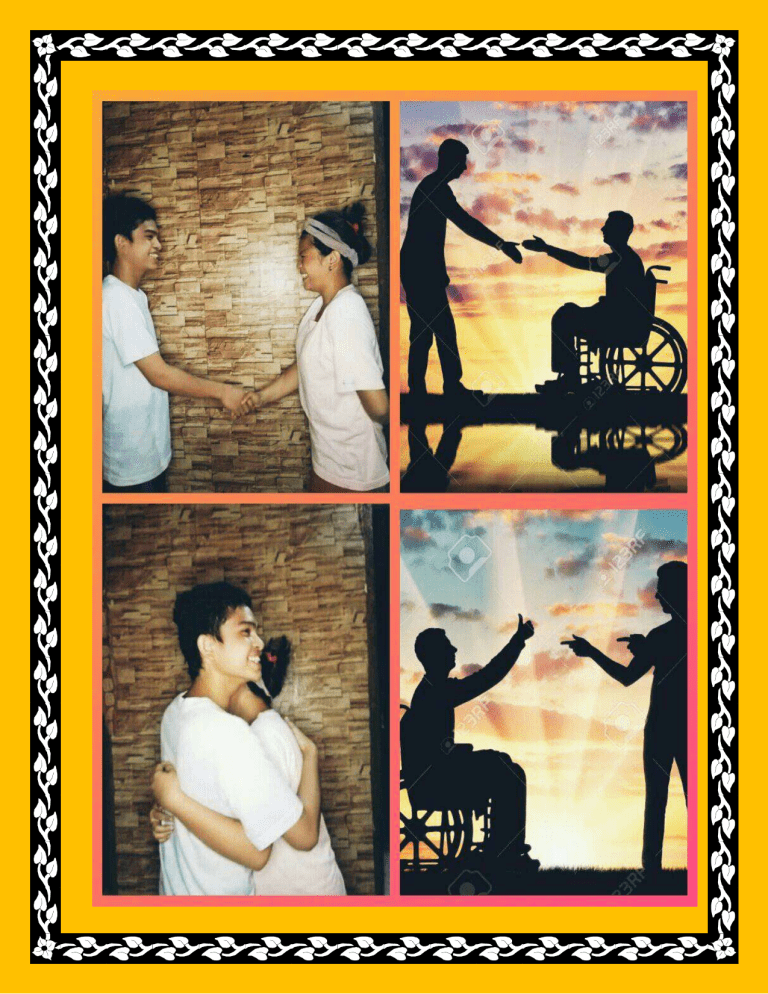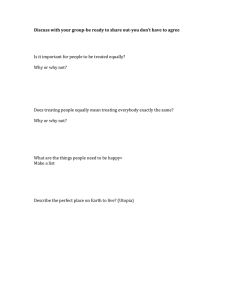Treating People Equally: Disability Etiquette & Inclusivity
advertisement

Treating People Equally Disability etiquette promotes goodwill and respect among all people. It helps make society more inclusive for everyone. People with disabilities make up the largest minority group in the world. At some point in our lives, most of us will develop a disability; know someone who has one, or both. Disability affects everyone – all ages, genders, and ethnic and cultural backgrounds. • When you greet someone with a disability, greet them the same way you would anyone else. • Speak to the person the way you would like to be spoken to. Talk directly to the person, not their caregiver or assistant. • Be respectful. No one wants to be talked down to. Be as formal or as familiar with the person as you are with anyone else. • You should not assume a person with a disability needs help. They know their abilities best. • It’s always OK to ask. If they accept help, wait for their instructions. • People appreciate their privacy. Ask if you may discuss a person’s disability only if it is relevant to the conversation. • Some people need extra time to gather their thoughts. Please be patient and let them set the pace. • Service animals are working. You should not pet or try to distract a service animal. • It’s OK to use common phrases, such as: “See you later,” “Gotta run,” or “Did you hear about that?” Chances are the person with a disability will understand. In addition, treating people equally means treating everyone the same regardless of their race, sex, social status, disability, religion, or anything else. In a community, if everyone is treated equally, then everyone should be able to work together, solve problems, and feel safe and cared for. Treating people equally is also a big part of human rights. So, no matter what someone’s individual circumstances are, they should be treated with respect, dignity, and kindness. We are all different, every single one of us, and that is great! However, sometimes people can be harsh, and they may not be nice to someone who is quite different from them. This can range from ignoring them to violence and discrimination.This would not be considered treating someone equally.



